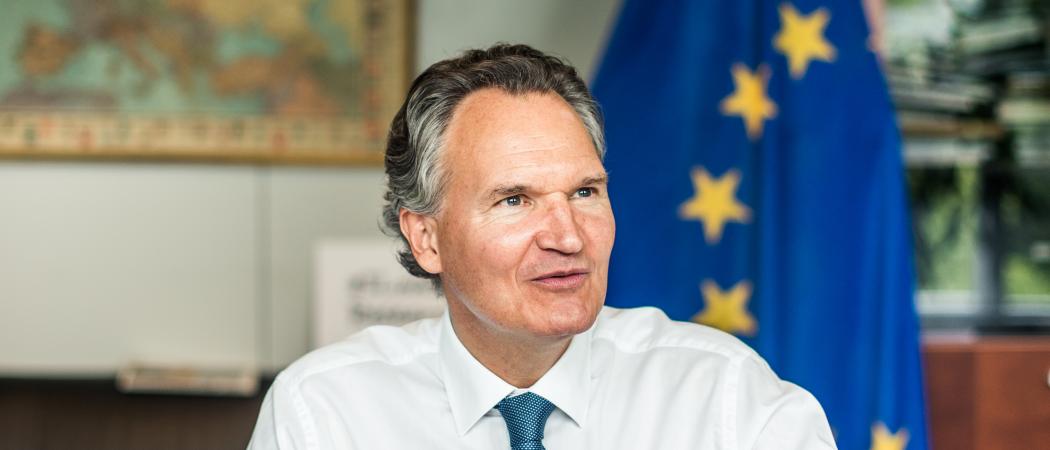Robert-Jan Smits, former EU research chief, is working on a controversial plan that could erode publishers’ control over science

A senior European Commission official called for “radical steps” to speed up making publicly funded research in Europe freely available to readers, rather than locked behind publishers’ paywalls.
“We are today at 20 per cent full open access,” said Robert-Jan Smits, former director-general for research and innovation at the Commission. “Fifteen years ago, we were at 15 per cent open access,” and in 2016 the EU set a target that all publicly research be open, free, to readers by 2020.
“So, 80 per cent to go by 2020? Impossible, unless we take radical steps,” said Smits. He was speaking at a conference July 11 in Toulouse.
The Dutchman is finalising a roadmap on open access for the Commission, entitled Plan S. In it, he is expected to call on science funders to help him release cutting-edge knowledge currently hidden behind high paywalls. Given his nearly eight-year position as the most senior civil servant in Brussels dealing with research, Smits’ views are expected to have impact when finally published. Some details have already started to leak out in Brussels – but, he said in Toulouse, he isn’t yet finished.
“I want to have a critical mass of funders behind the plan before I announce it. The power is with the ones who hold the purse and money,” Smits said.
“It’s not that difficult to flip the system,” Smits continued. “The measures we are thinking about are not rocket science – they’re straightforward. The main component: if you get a grant in the future, you can only publish in open access journals,” he said.
Smits says he has drawn inspiration from funders such as the Bill & Melinda Gates Foundation, which has made its grants contingent on open access to resulting articles. Researchers in some disciplines have started open access journals to protest publishers’ paywalls.
Taking on vested interests
While the paid subscription model of publishers appears increasingly untenable, Smits told delegates that he recognises that an “enormous amount of vested interests” lie still in the way.
Among the people who may not welcome change are university libraries. “If you are the boss of an academic library, you get a lot of money to pay for subscriptions. If you don’t have that money anymore, your status may go down the drain,” said Smits.
Academic institutions pay millions for subscriptions to publishers’ products, and in recent years, the skyrocketing cost of journals has severely strained budgets around Europe. More than 200 German universities and research institutes recently banded together to pressure publishers to change their business models (talks over fees continue).
The global annual outlay for subscription articles is €8 billion, with libraries paying between €3,800 and €5,000 per paper, according to an estimate by the Max Planck Society.
Publishers like Elsevier, Taylor & Francis, Springer-Nature and Wiley have profit margins that typically exceed 30 per cent. The EU’s research commissioner, Carlos Moedas, recently called the model “outrageous”.
“You can make a hell of a lot of money,” Smits said. “A fortune to allow people to read what we’ve already paid for with the public purse.”

 A unique international forum for public research organisations and companies to connect their external engagement with strategic interests around their R&D system.
A unique international forum for public research organisations and companies to connect their external engagement with strategic interests around their R&D system.